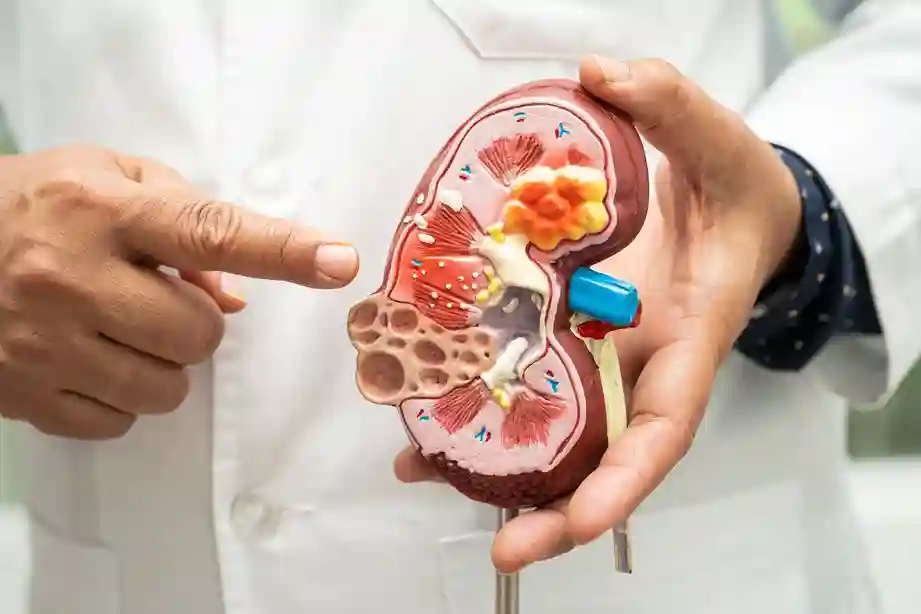What is a Kidney-Hypertension Specialist?
A nephrologist is a doctor who specializes in treating kidney disease.
Nephrologists not only specialize in diseases that specifically affect the functioning of the kidneys, but also have knowledge of how kidney disease can affect other parts of the body.
Sp.PD Kidney-Hypertension doctors themselves are divided into two, namely treating adult and child patients.
For adults, doctors must first complete their internal medicine specialist education, then continue their kidney subspecialty studies.
Meanwhile, for children, doctors must complete specialist pediatric education first, before continuing on to kidney sub specialization.
Diseases Treated by Kidney-Hypertension Specialist Doctors
Nephrologists may work to help diagnose and treat the following conditions:
- The presence of blood or protein in the urine.
- Chronic kidney disease.
- Kidney stones, although urologists can also treat them.
- Kidney infection.
- Kidney swelling that occurs due to glomerulonephritis or interstitial nephritis.
- Kidney cancer.
- Polycystic kidney disease.
- Hemolytic uremic syndrome.
- Renal artery stenosis.
- Nephrotic syndrome.
- End-stage kidney disease.
- Kidney failure, either acute or chronic.
In addition, a nephrologist can also be involved if there are other factors that cause kidney disease or dysfunction, including:
- High blood pressure.
- Diabetes.
- Heart disease.
- Autoimmune conditions, such as lupus.
- Side effects of taking drugs.
Medical Actions That Can Be Performed by a Kidney-Hypertension Specialist
The most common tests used by kidney and hypertension specialists to diagnose or monitor kidney conditions are blood and urine tests.
The kidneys filter excess fluid and waste from the blood, forming urine. This means that blood and urine tests can often help identify whether the kidneys are working well.
In addition, urine tests can also check for abnormal protein levels associated with kidney damage in the urine.
The laboratory examinations and medical procedures that can be carried out by a nephrologist are:
Blood Test
Blood tests performed include:
- Glomerular filtration rate (GFR) . This test measures how well your kidneys are filtering your blood. GFR begins to drop below normal levels in kidney disease.
- Serum creatinine. Creatinine is a waste product and is present at higher levels in the blood in people with kidney dysfunction.
- Blood urea nitrogen (BUN). Like creatinine, high levels of this waste product in the blood are a sign of kidney dysfunction.
Urine Examination
Furthermore, the forms of urine examination carried out include:
- Urinalysis. This urine sample can be tested with a dipstick for pH and the presence of abnormal amounts of blood, glucose, protein, or bacteria.
- Albumin/creatinine ratio. This urine test measures the amount of albumin protein in the urine. Albumin in the urine is a sign of kidney dysfunction.
- 24-hour urine collection. This method uses a special container to collect all urine over a 24-hour period. Further testing can be performed on this sample.
- Creatinine clearance. A measure of creatinine from a 24-hour blood and urine sample, used to calculate the amount of creatinine that is removed from the blood and transferred to the urine.
- Microalbuminuria. The microalbuminuria test is a sensitive type of dipstick test that can pick up small amounts of the protein albumin in the urine.
Medical Procedures
Nephrologists use several types of procedures to help diagnose, monitor, and treat kidney conditions. These procedures include:
- Ultrasound. This test can detect changes in the size or position of the kidneys, and obstructions, such as tumors, other abnormal growths such as cysts, or kidney stones.
- CT scan. This test can detect obstruction or abnormalities in the structure of the kidney organ.
- Biopsy. This test is done to assess kidney damage, identify disease, and determine if there is potential for complications from the transplant process.
- Hemodialysis. This procedure involves flowing blood through an artificial kidney machine called a hemodialyzer to remove waste, extra fluid, and extra chemicals before returning it to the body. The blood is returned to the body through a port or catheter in the arm, leg, or sometimes the neck.
- Kidney transplantation. A transplant involves removing part or all of a damaged kidney, and replacing it with a matching donor organ.
When to Visit a Kidney-Hypertension Specialist
A general practitioner may be able to help prevent and treat the early stages of kidney disease.
However, sometimes this early stage may not have any symptoms or may have non-specific symptoms, such as fatigue, sleep problems, and changes in the amount of urination.
Routine tests can monitor your kidney function, especially if you are at risk for kidney disease. This group includes people with:
- High blood pressure.
- Diabetes.
- Heart disease.
- Family history of kidney problems.
Testing can detect signs of declining kidney function, such as decreased glomerular values or increased levels of albumin in the urine.
If test results show rapid or continued decline in kidney function, your doctor may refer you to a nephrologist.
Additionally, you should see a nephrologist right away if you have any of the following:
- Advanced chronic kidney disease.
- Large amounts of blood or protein in the urine.
- Recurrent kidney stones, although you may also be referred to a urologist for this.
- High blood pressure that does not improve even after taking medication.
- Rare or inherited causes of kidney disease.
Preparation Before and After Visiting a Kidney-Hypertension Specialist
The doctor will ask about all the symptoms and complaints you are experiencing before performing a physical examination. It is best to provide the doctor with as much detailed information as possible to facilitate diagnosis.
For example, reporting the examinations and treatments you have undergone, both medical and non-medical.
Also tell us what medications you are taking, as well as your family’s health history.
If necessary, bring all the supporting examination results that you have done.
After getting a diagnosis, you should follow your doctor’s advice regarding treatment for your condition. In addition, make sure you also do regular check-ups according to the schedule determined by your doctor.

